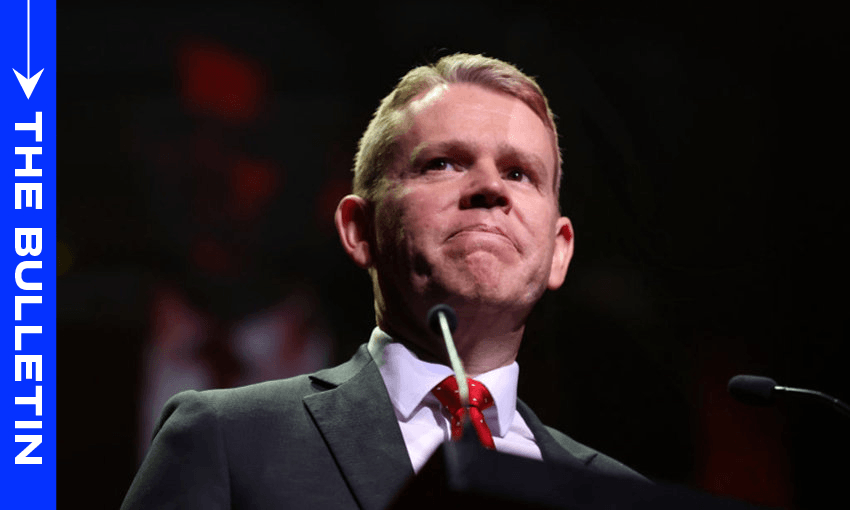Soul-searching about tax, stability, experience and the reduced strength of the Māori caucus looms for a Labour party looking to rebuild, writes Anna Rawhiti-Connell in this excerpt from The Bulletin, The Spinoff’s morning news round-up. To receive The Bulletin in full each weekday, sign up here.
Chris Hipkins remains Labour leader after secret ballot
As expected, Chris Hipkins retained his position as leader of the Labour party after the caucus met yesterday and a secret ballot was conducted. There were no other candidates for leadership of the party. Carmel Sepuloni is now Labour’s deputy after Kelvin Davis opted not to stay in the role. Sepuloni will now head to the Pacific Islands Forum in Rarotonga with National’s Gerry Brownlee. In the press conference afterwards, Hipkins was asked by media about a wealth tax. “I have also been clear with the caucus – we lost and that means we start again, and that means everything comes back onto the table – and that includes a discussion around tax,” he said.
Tax questions remerge as Hipkins enacts ‘government has ended’ caveat
Echoing his predecessor’s ruling out of a capital gains tax and a wealth tax while leading government, Hipkins had said before the election that “under a government I lead there will be no wealth or capital gains tax after the election.” Yesterday he said that government had ended and it was now after the election. He was unwilling to say whether ruling the taxes out was a mistake. Newsroom’s Jo Moir has questioned the viability of Hipkins being able to “seriously sell a wealth or capital gains tax to voters in just a couple of years’ time without looking like a leader devoid of any political principles.” Reminding us that questions about these kinds of taxes have been swirling around for 12 years now, The Post’s Luke Malpass writes, “the fact that it continues to be a major policy in the mix suggests a lack of new thinking, over a long time, from the left-of-centre party… a capital gains tax and a wealth tax could reasonably be in the mix for some tax reform, but neither will win many votes or make New Zealand a more prosperous country.”
Experience, stability and the Māori caucus
Labour’s election loss has already seen the departure of senior Labour MPs Andrew Little and Nanania Mahuta. Yesterday, Willie Jackson reiterated his earlier comments about being unsure if he will stand in the 2026 election. As Malpass notes, the summer holidays will provide more time for reflection for other Labour MPs, and we could see further resignations. Moir writes that there will be plenty of soul-searching about what happened in the Māori electorates, where Te Pāti Māori won six out of seven seats. As Jon Stokes writes in the Herald, despite Labour having its largest ever Māori caucus during the last term, “the election result is a powerful example that Māori support must never be taken for granted.”
Full check of all voting place results after data entry errors
The Electoral Commission isn’t quite starting with a blank page but will be conducting a full check of all voting place results after data entry errors at three polling booths led to hundreds of votes being wrongly assigned to fringe parties. At two voting places in Port Waikato and one in Ilam, some party votes were recorded in the wrong row, giving hundreds of votes to the Leighton Baker Party and the New Conservatives, while National received none. It appears that the commission was only alerted to the error after a Herald investigation. Chief electoral officer Karl Le Quesne said that the number of votes involved was low and “does not affect the overall results, successful candidates or allocation of seats at all”, and the Commission has apologised.
